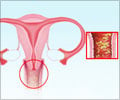A recent study says that medical professionals in five countries did not wash their hands properly, thereby increasing the risk of spreading infections.

A study from the World Health Organization (WHO) found that doctors in several countries don't wash their hands the right way 40 percent of the time, the New York Daily News reported.
Nurses at the 43 hospitals across Costa Rica, Mali, Pakistan, Saudi Arabia and Italy that were reviewed had the highest compliance rates at 71 percent, WHO said.
The study, which took place from 2006 to 2008, was related to WHO's Clean Care is Safer Care program. The organization has set out to teach medical professionals about proper hand hygiene in order to reduce the risk of infection and help prevent the spread of drug-resistant bacteria and viruses.
WHO says doctors and nurses should use alcohol-based rub or soap and water on their hands at five key moments: before touching a patient, before aseptic or sterile procedures, after they come into contact with bodily fluids, after touching a patient and after touching a patient's surroundings.
The findings were recently published in "Lancet Infectious Diseases."
Advertisement









